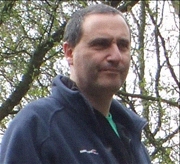Tutor HuntResources Physical Education Resources
Phases Of Learning
Looking at the Phases of Learning through the specific sport volleyball
Date : 07/09/2015
Author Information

Uploaded by : Mark
Uploaded on : 07/09/2015
Subject : Physical Education
As a player is introduced to a new skill they will progress through 3 stages or phases of learning (Fitts and Posner 1967). We can place these on a continuum. For example a player learning to hit will go through these learning stages until they achieve mastery learning.
Cognitive Phase Associative Phase Autonomous Phase
Beginner Elite Performer
Cognitive Phase
This is the initial stage of learning where the learner is confronted with questions such as
What is the goal, grip, rules etc.
At this stage the dominant questions are about goal identification (what to do), performance evaluation (how good), motor plan (action), timing (when).
? Verbal and cognitive abilities dominate this stage ? It is marked by a large number of errors which tend to be gross in nature ? Performance is highly variable and inconsistent, performer will know something is wrong but unaware how to correct it. ? Performer needs specific information or cues to highlight technique. ? Attentional demands of task are high and this will prevent the processing of simultaneous activities such as game situations. Due to limited attentional capacity instructions must be brief. ? Length of this stage tends to be short depending upon the individual.
Associative Phase
Sometimes called the practice phase, it is significantly longer than the cognitive phase. Most of the cognitive problems are now solved. The fundamental movement patterns (motor programme) of the skill are now established and performance becomes more consistent.
? Errors are fewer and less gross in nature - emphasis upon refining skill ? Some ability at fault diagnosis begins to develop although the error detection's tend to be gross ? Performance is less variable ? Performer begins to monitor own feedback as they practice under a variety of situations.
Autonomous Phase
This phase is characterised by smooth and fluent performances.
? Development of actions that do not require attention. Decrease in attentional demands frees performer to tackle high-order skills such as strategy etc. ? Performer will now attend other cues to allow optimal performance ? Motor programme well established ? Advanced error detection and ability to make adjustments ? Performance improvement slow as they have already mastered skill. ? Learning still continues and can be seen as a reduction of physical and mental effort, style etc.
".there is a good deal of similarity between highly practised skills and reflexes."
Investigation
You must now apply these three phases to a practical situation
1. Select a skill in your chosen sport 2. Identify the 3 phases that a learner will pass through in mastering the skill 3. Identify the attentional demands of each phase for the skill 4. Identify the errors of each phase 5. Identify feedback for each phase 6. Identify input from a teacher or coach for a performer at each stage.
This resource was uploaded by: Mark
